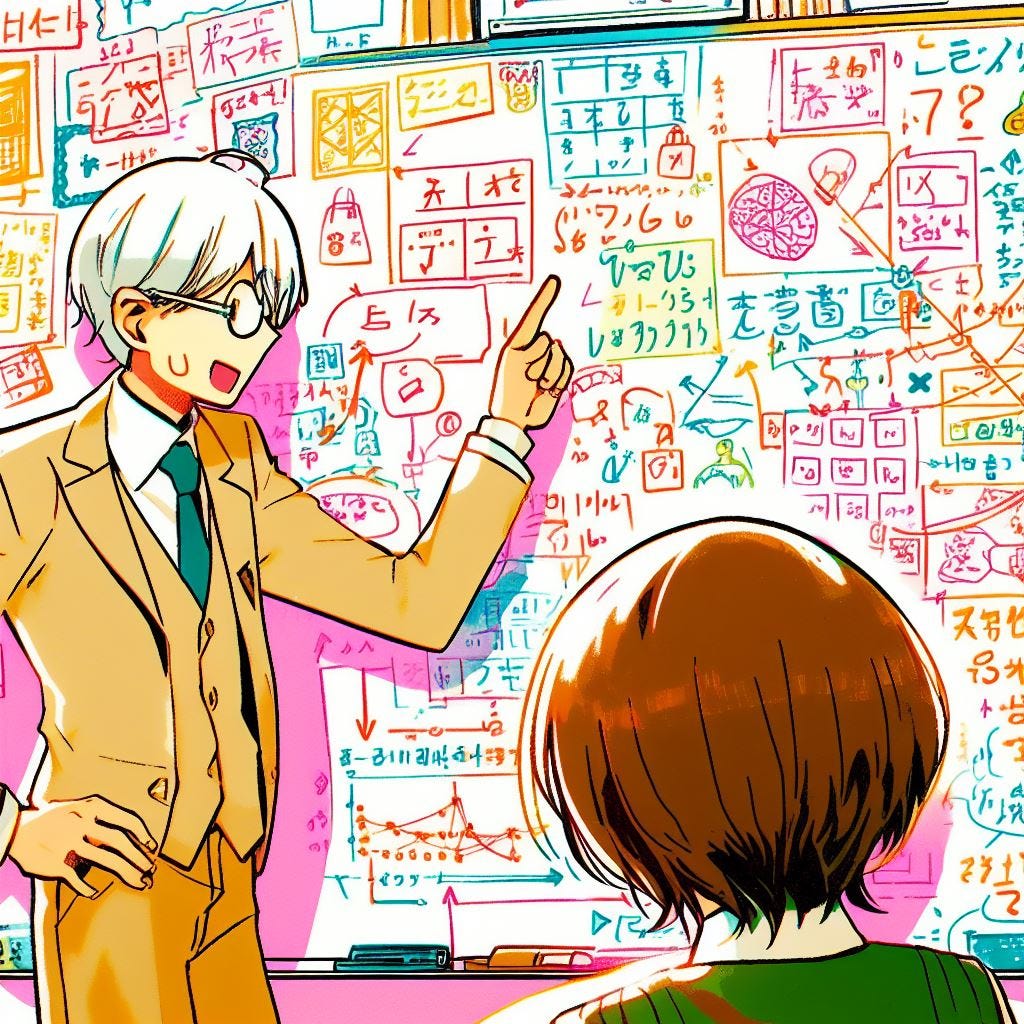The Curse of Expertise: Why Experts may not be the best at teaching others.
Why Experts Don’t Always Make the Best Teachers (And What You Can Do About It)
As a business leader or HR professional, you likely rely on subject matter experts to train and develop your workforce. Who better to teach complex skills than someone who has mastered them? Yet contrary to what common sense might suggest, being highly knowledgeable in a domain can be a curse when it comes to teaching others.
In this post, we’ll explore research showing how experts can struggle as instructors, the types of knowledge required for good teaching, and techniques you can use to help experts become better at sharing their hard-won skills with others.
The Illusion of Teaching Ability
When experts first consider teaching their subject matter, most are confident they’ll be good at it. After all, they know the material inside and out. What could be difficult about showing others what they themselves have learned?
Yet this intuitive belief often proves misguided. In a 2015 study, psychologists Matthew Fisher and Frank Keil found that experts consistently overestimated how well they could teach topics in their domain of expertise. Experts predicted their explanations would be highly rated by others. But when asked to actually teach those topics, the experts were surprised by how poor their instruction was received. They realised they could not provide the clear, coherent explanations they assumed they could.
This “illusion of explanatory depth” stems from experts forgetting just how many small details, helpful examples, and connections they’ve absorbed over years of intense study. Mastery that came painstakingly over time feels simple and natural. But for a novice, nothing about the subject is intuitive or easy yet. As Nobel prize-winning physicist Richard Feynman quipped, “Knowing something is easy, explaining it is hard.”
The curse of expertise has been demonstrated across domains:
- In one study, trained nurses overestimated their ability to perform basic life support skills like CPR and using defibrillators. When tested, many could not demonstrate the skills accurately.
- A study of general practitioners found they consistently misestimated their medical knowledge. Despite years of experience, they performed poorly at assessing their own understanding of current best practices.
- As medical students advanced through school, their self-evaluations grew less accurate compared to expert supervisors' assessments.
- Students who considered themselves "experts" in a field were less willing to admit gaps in their knowledge and showed poorer metacognitive accuracy.
This research shows that simply accumulating experience does not automatically confer an objective view of one's capabilities or limitations. Experts may rely on vague intuitive judgments rather than concrete data when self-assessing what they can effectively teach students or novices.
Even with mastery of content, experts lack the teaching toolkit to relay that content effectively to learners. They underestimate the scaffolding, analogies, and sequence of simplified steps needed to initiate others into complex topics.
Teaching Knowledge: The Missing Piece for Experts
To teach well, instructors need both deep content expertise and formal teaching knowledge of how to share that expertise. Let's look at the key elements required:
Content Knowledge:
- Fluency with facts, concepts, and procedures in the subject area
- Ability to make connections between ideas and represent them accurately
- Skill at responding to questions and providing examples
Teaching Knowledge:
- Understanding learning theories and student development
- Planning curriculum, lessons, assessments, and activities
- Using teaching methods and strategies tailored to the subject matter
- Sequencing material in a logical order and simplifying concepts
- Encouraging active learning and monitoring student progress
- Making ideas engaging through real-world applications
Without training, experts tend to teach as they themselves learned. Yet most did not acquire their knowledge through formal instruction. For mathematicians, their breakthroughs came struggling alone at a chalkboard. Lawyers pieced together precedent through late nights poring over case law. Their learning looked nothing like a teacher-student exchange.
Even armed with content mastery, experts lack insight into how beginners come to grasp unfamiliar concepts and procedures. They underestimate the support and incremental steps needed.
Types of Knowledge for Teaching
So what components of knowledge do effective teachers leverage? Loewenberg Ball proposes several categories:
- Common content knowledge (CCK): Facts, concepts, and procedures used in both teaching and non-teaching settings. For example, calculating 307 - 168.
- Specialised content knowledge (SCK): Deep knowledge of content tailored specifically for teaching. Like analysing student errors or judging if a new method would work in general.
- Knowledge of content and students (KCS): Understanding common student conceptions and misconceptions around particular topics.
- Knowledge of content and teaching (KCT): Knowledge that combines content with teaching methods, like choosing powerful examples or using metaphors.
Teaching requires flexibly drawing on combinations of these knowledge types in harmony. None on their own is sufficient without the understanding of how to convey them. Even advanced expertise outside a classroom setting differs from the specialised professional knowledge teachers deploy.
Helping Experts Become Better Teachers
The good news is experts can close these knowledge gaps. With coaching on foundational teaching techniques, you can equip your expert instructors to share their specialised skills more successfully. Here are four evidence-based methods to try:
Scaffold complex material: Break down dense topics into manageable steps. Model workflows before handing over more responsibility. Use think-alouds to verbalise tacit thought processes. Provide templates and heuristics as training wheels for novices.
Connect to prior knowledge: Link new ideas to what learners already know. Compare unfamiliar concepts to familiar analogies and metaphors. Activate relevant schema and remind learners of prerequisites before introducing new material.
Check for understanding: Have learners explain or demonstrate new skills in their own words. Ask probing questions and clarify misunderstandings. Test for mastery through low-stakes quizzes or practice opportunities before moving on.
Use retrieval and spaced practice: Revisit key ideas instead of massing material into long blocks. Interleave topics and mix up problem types. Have learners actively produce knowledge from memory rather than passive restudy. Space practice over time instead of cramming.
Research into cognitive learning theory provides evidence for these teaching best practices. By incorporating principles like avoiding cognitive overload, tapping into motivation, providing useful feedback, and encouraging elaboration, your experts can gain the learning techniques to share their expertise effectively.
You can also equip experts with core teaching skills like Rosenshine's 10 research-backed principles of instruction:
1. Begin lessons with a short review of previous material
2. Present new material in small steps with student practice after each step
3. Ask a high frequency of questions and check for understanding
4. Provide models and scaffolds for difficult tasks
5. Guide student practice
6. Check for student understanding
7. Obtain a high success rate
8. Provide scaffolds for difficult tasks
9. Require and monitor independent practice
10. Engage students in weekly and monthly review
Following evidence-based principles like these can avoid the common pitfalls of unstructured, lecturer-focused instruction. Use them to transform your experts' vast domain knowledge into enriched learning experiences.
Overcoming the “Curse of Expertise”
Expertise can be both a blessing and a curse when it comes to teaching. On one hand, fluency with complex subject matter provides indispensable guidance for novices. But on the other, it can breed complacency and distorted self-assessment of instructional ability. Don’t assume your skilled employees inherently know how to impart that hard-won knowledge. Supplement their sophistication in a domain with fundamental training in how learning works and how to teach effectively.
Help your experts overcome the “illusion of explanatory depth” by being transparent about common pedagogical missteps. Instill a culture of continuous improvement where instructors regularly seek feedback from learners and mentors. Structure in time for self-reflection and honing of teaching skills. The path to expertise was long; the path to teaching it effectively deserves similar dedication.
Equipped with both content mastery and learning methods, your experts will transform from sages on a stage to guiding lights along a path to wisdom. Learners under their tutelage will emerge with richer understanding and skills to create impact. And you’ll have taken an important step in building an empowered, enlightened organisation.








